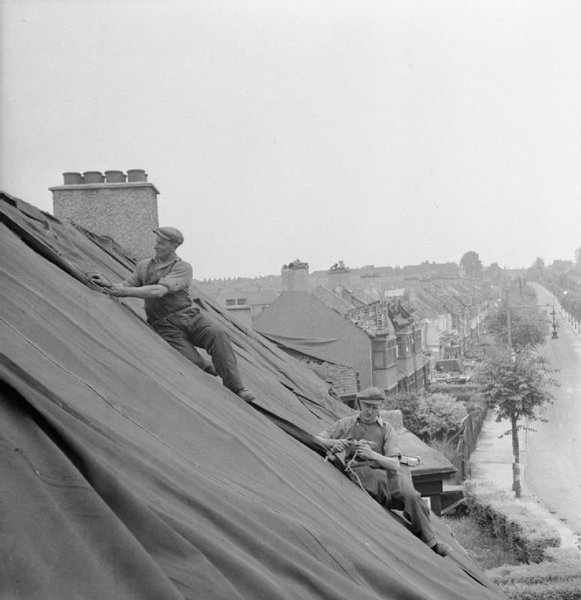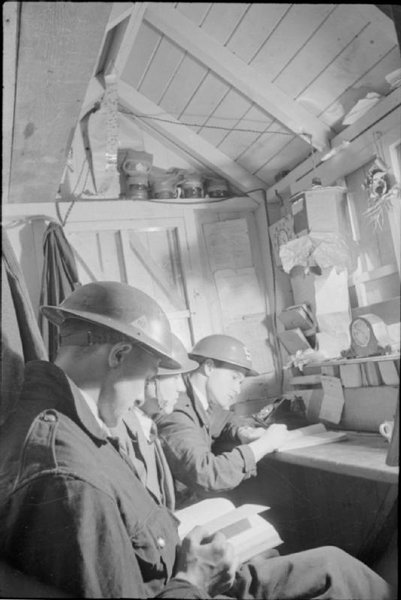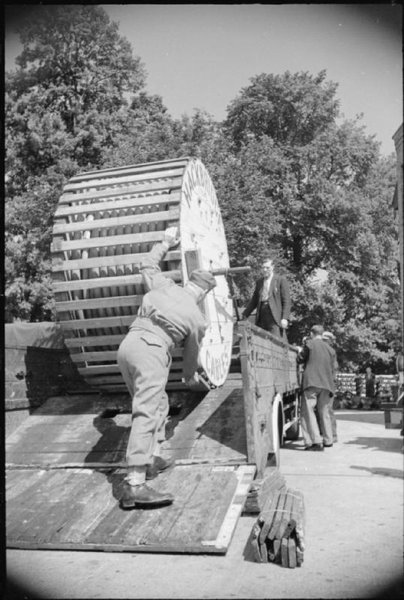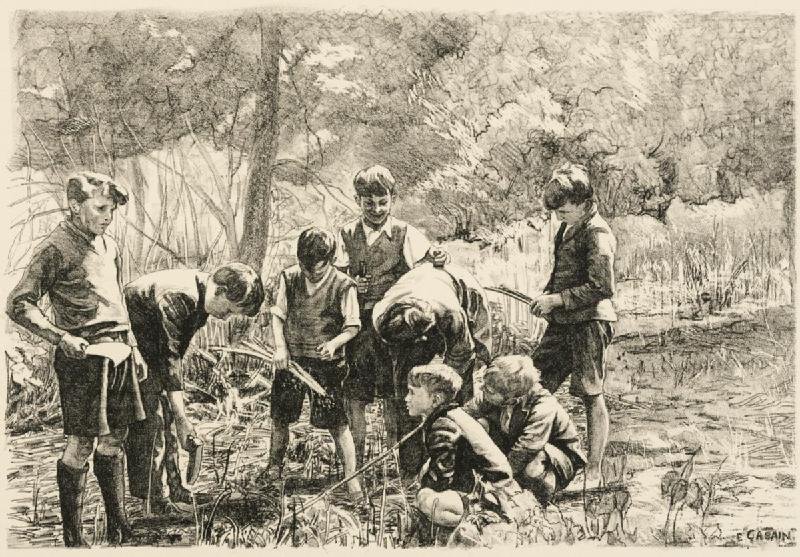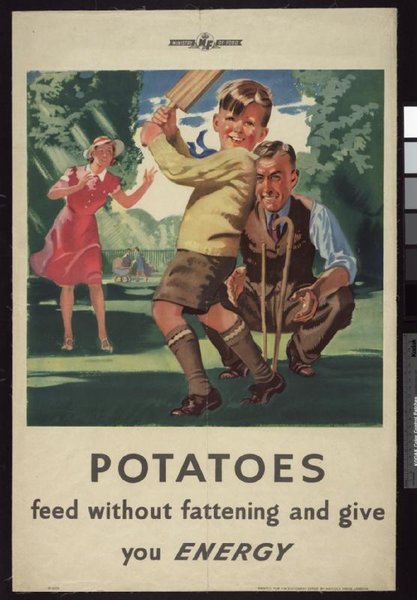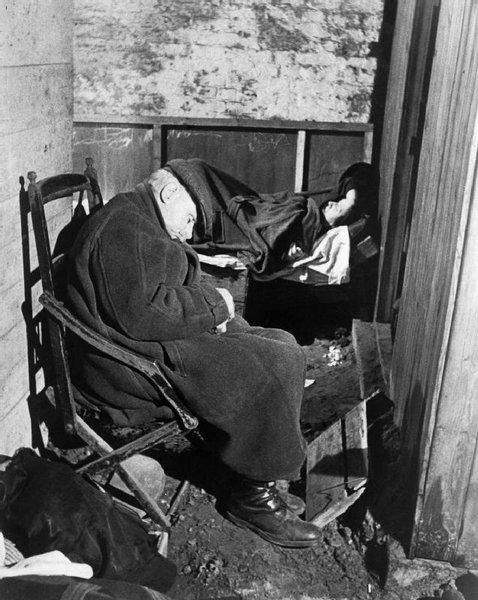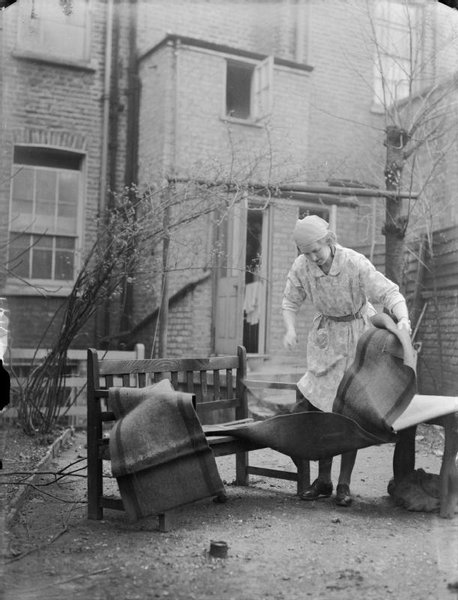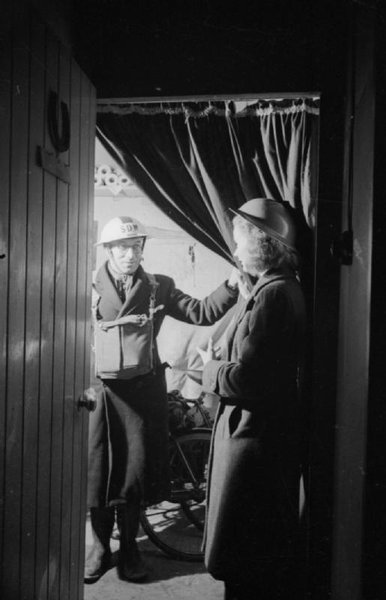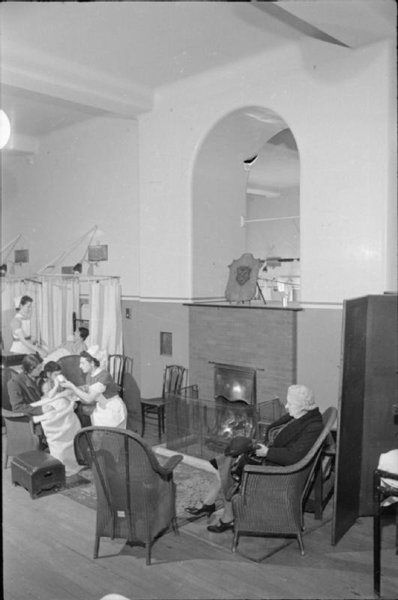High Explosive Bomb at Stockwell Road
Description
High Explosive Bomb :
Source: Aggregate Night Time Bomb Census 7th October 1940 to 6 June 1941
Fell between Oct. 7, 1940 and June 6, 1941
Present-day address
Stockwell Road, Stockwell, London Borough of Lambeth, SW9 0TP, London
Further details
56 18 NE - comment:
Nearby Memories
Read people's stories relating to this area:
Contributed originally by kenyaines (BBC WW2 People's War)
After a few months of the tortuous daily Bus journey to Colfes Grammar School at Lewisham, I'd saved enough money to buy myself a new bicycle with the extra pocket money I got from Dad for helping in the shop.
Strictly speaking, it wasn't a new one, as these were unobtainable during the War, but the old boy in our local Cycle-Shop had some good second-hand frames, and he was still able to get Parts, so he made me up a nice Bike, Racing Handlebars, Three-Speed Gears, Dynamo Lighting and all.
I was very proud of my new Bike, and cycled to School every day once I'd got it, saving Mum the Bus-fare and never being late again.
I had a good friend called Sydney who I'd known since we were both small boys. He had a Bike too, and we would go out riding together in the evenings.
One Warm Sunday in the Early Summer, we went out for the day. Our idea was to cycle down the A20 and picnic at Wrotham Hill, A well known Kent beauty spot with views for miles over the Weald.
All went well until we reached the "Bull and Birchwood" Hotel at Farningham, where we found a rope stretched across the road, and a Policeman in attendance. He said that the other side of the rope was a restricted area and we couldn't go any further.
This was 1942, and we had no idea that road travel was restricted. Perhaps there was still a risk of Invasion. I do know that Dover and the other Coastal Towns were under bombardment from heavy Guns across the Channel throughout the War.
Anyway, we turned back and found a Transport Cafe open just outside Sidcup, which seemed to be a meeting place for cyclists.
We spent a pleasant hour there, then got on our bikes, stopping at the Woods on the way to pick some Bluebells to take home, just to prove we'd been to the Country.
In the Woods, we were surprised to meet two girls of our own age who lived near us, and who we knew slightly. They were out for a Cycle ride, and picking Bluebells too, so we all rode home together, showing off to one another, but we never saw the Girls again, I think we were all too young and shy to make any advances.
A while later, Sid suggested that we put our ages up and join the ARP. They wanted part-time Volunteers, he said.
This sounded exciting, but I was a bit apprehensive. I knew that I looked older than my years, but due to School rules, I'd only just started wearing long trousers, and feared that someone who knew my age might recognise me.
Sid told me that his cousin, the same age as us, was a Messenger, and they hadn't checked on his age, so I went along with it. As it turned out, they were glad to have us.
The ARP Post was in the Crypt of the local Church, where I,d gone every week before the war as a member of the Wolf-Cubs.
However, things were pretty quiet, and the ARP got boring after a while, there weren't many Alerts. We never did get our Uniforms, just a Tin-Hat, Service Gas-Mask, an Arm-band and a Badge.
We learnt how to use a Stirrup-Pump and to recognise anti-personnel bombs, that was about it.
In 1943, we heard that the National Fire Service was recruiting Youth Messengers.
This sounded much more exciting, as we thought we might get the chance to ride on a Fire-Engine, also the Uniform was a big attraction.
The NFS had recently been formed by combining the AFS with the Local and County Fire Brigades throughout the Country, making one National Force with a unified Chain of Command from Headquarters at Lambeth.
The nearest Fire-Station that we knew of was the old London Fire Brigade Station in Old Kent Road near "The Dun Cow" Pub, a well-known landmark.
With the ARP now behind us,we rode down there on our Bikes one evening to find out the gen.
The doors were all closed, but there was a large Bell-push on the Side-Door. I plucked up courage and pressed it.
The door was opened by a Firewoman, who seemed friendly enough. She told us that they had no Messengers there, but she'd ring up Divisional HQ to find out how we should go about getting details of the Service.
This Lady, who we got to know quite well when we were posted to the Station, was known as "Nobby", her surname being Clark.
She was one of the Watch-Room Staff who operated the big "Gamel" Set. This was connected to the Street Fire-Alarms, placed at strategic points all over the Station district or "Ground", as it was known. With the info from this or a call by telephone, they would "Ring the Bells down," and direct the Appliances to where they were needed when there was an alarm.
Nobby was also to figure in some dramatic events that took place on the night before the Official VE day in May 1945 when we held our own Victory Celebrations at the Fire-Station. But more of that at the end of my story.
She led us in to a corridor lined with white glazed tiles, and told us to wait, then went through a half-glass door into the Watch-Room on the right.
We saw her speak to another Firewoman with red Flashes on her shoulders, then go to the telephone.
In front of us was another half-glass door, which led into the main garage area of the Station. Through this, we could see two open Fire-Engines. One with ladders, and the other carrying a Fire-Escape with big Cart-wheels.
We knew that the Appliances had once been all red and polished brass, but they were now a matt greenish colour, even the big brass fire-bells, had been painted over.
As we peered through the glass, I spied a shiny steel pole with a red rubber mat on the floor round it over in the corner. The Firemen slid down this from the Rooms above to answer a call. I hardly dared hope that I'd be able to slide down it one day.
Soon Nobby was back. She told us that the Section-Leader who was organising the Youth Messenger Service for the Division was Mr Sims, who was stationed at Dulwich, and we'd have to get in touch with him.
She said he was at Peckham Fire Station, that evening, and we could go and see him there if we wished.
Peckham was only a couple of miles away, so we were away on our bikes, and got there in no time.
From what I remember of it, Peckham Fire Station was a more ornate building than Old Kent Road, and had a larger yard at the back.
Section-Leader Sims was a nice chap, he explained all about the NFS Messenger Service, and told us to report to him at Dulwich the following evening to fill in the forms and join if we still wanted to.
We couldn't wait of course, and although it was a long bike ride, were there bright and early next evening.
The signing-up over without any difficulty about our ages, Mr Sims showed us round the Station, and we spent the evening learning how the country was divided into Fire Areas and Divisions under the NFS, as well as looking over the Appliances.
To our delight, he told us that we'd be posted to Old Kent Road once they'd appointed someone to be I/C Messengers there. However, for the first couple of weeks, our evenings were spent at Dulwich, doing a bit of training, during which time we were kitted out with Uniforms.
To our disappointment, we didn't get the same suit as the Firemen with a double row of silver buttons on the Jacket.
The Messenger's Uniform consisted of a navy-blue Battledress with red Badges and Lanyard, topped by a stiff-peaked Cap with red piping and metal NFS Badge, the same as the Firemen's. We also got a Cape and Leggings for bad weather on our Bikes, and a proper Service Gas-Mask and Tin-Hat with NFS Badge transfer.
I was pleased with it. I could definitely pass for an older Lad now, and it was a cut above what the ARP got.
We were soon told that a Fireman had been appointed in charge of us at Old Kent Road, and we were posted there. After this, I didn't see much of Section-Leader Sims till the end of the War, when we were stood down.
Old Kent Road, or 82, it's former LFB Sstation number, as the old hands still called it,was the HQ Station of the District, or Sub-Division.
It's full designation was 38A3Z, 38 being the Fire Area, A the Division, 3 the Sub-Division, and Z the Station.
The letter Z denoted the Sub-Division HQ, the main Fire Station. It was always first on call, as Life-saving Appliances were kept there.
There were several Sub-Stations in Schools around the Sub-Division, each with it's own Identification Letter, housing Appliances and Staff which could be called upon when needed.
In Charge of us at Old Kent Road was an elderly part-time Fireman, Mr Harland, known as Charlie. He was a decent old Boy who'd spent many years in the Indian Army, and he would often use Indian words when he was talking.
The first thing he showed us was how to slide down the pole from upstairs without burning our fingers.
For the first few weeks, Sid and I were the only Messengers there, and it was a very exciting moment for me to slide down the pole and ride the Pump for the first time when the bells went down.
In his lectures, Charlie emphasised that the first duty of the Fire-Service was to save life, and not fighting fires as we thought.
Everything was geared to this purpose, and once the vehicle carrying life-saving equipment left the Station, another from the next Station in our Division with the gear, would act as back-up and answer the next call on our ground.
This arrangement went right up the chain of Command to Headquarters at Lambeth, where the most modern equipment was kept.
When learning about the chain of command, one thing that struck me as rather odd was the fact that the NFS chief at Lambeth was named Commander Firebrace. With a name like that, he must have been destined for the job. Anyway, Charlie kept a straight face when he told us about him.
We had the old pre-war "Dennis" Fire-Engines at our Station, comprising a Pump, with ladders and equipment, and a Pump-Escape, which carried a mobile Fire-Escape with a long extending ladder.
This could be manhandled into position on it's big Cartwheels.
Both Fire-Engines had open Cabs and big brass bells, which had been painted over.
The Crew rode on the outside of these machines, hanging on to the handrail with one hand as they put on their gear, while the Company Officer stood up in the open cab beside the Driver, lustily ringing the bell.
It was a never to be forgotten experience for me to slide down the pole and ride the Pump in answer to an alarm call, and it always gave me a thrill, but after a while, it became just routine and I took it in my stride, becoming just as fatalistic as the Firemen when our evening activities were interrupted by a false alarm.
It was my job to attend the Company Officer at an incident, and to act as his Messenger. There were no Walkie-Talkies or Mobile Phones in those days, and the public telephones were unreliable, because of Air-Raids, that's why they needed Messengers.
Young as I was, I really took to the Fire-Service, and got on so well, that after a few months, I was promoted to Leading-Messenger, which meant that I had a stripe and helped to train the other Lads.
It didn't make any difference financially though, as we were all unpaid Volunteers.
We were all part-timers, and Rostered to do so many hours a week, but in practice, we went in every night when the raids were on, and sometimes daytimes at weekends.
For the first few months there weren't many Air-Raids, and not many real emergencies.
Usually two or three calls a night, sometimes to a chimney fire or other small domestic incident, but mostly they were false alarms, where vandals broke the glass on the Street-Alarms, pulled the lever and ran. These were logged as "False Alarm Malicious", and were a thorn in the side of the Fire-Service, as every call had to be answered.
Our evenings were good fun sometimes, the Firemen had formed a small Jazz band.
They held a weekly Dance in the Hall at one of the Sub-Stations, which had been a School.
There was also a full-sized Billiard Table in there on which I learnt to play, with one disaster when I caught the table with my cue, and nearly ripped the cloth!
Unfortunately, that School, a nice modern building, was hit by a Doodle-Bug later in the War, and had to be demolished.
Charlie was a droll old chap. He was good at making up nicknames. There was one Messenger who never had any money, and spent his time sponging Cigarettes and free cups of tea off the unwary.
Charlie referred to him as "Washer". When I asked him why, the answer came: "Cos he's always on the Tap".
Another chap named Frankie Sycamore was "Wabash" to all and sundry, after a song in the Rita Hayworth Musical Film that was showing at the time. It contained the words:
"Neath the Sycamores the Candlelights are gleaming, On the banks of the Wabash far away".
Poor old Frankie, he was a bit of a Joker himself.
When he was expecting his Call-up Papers for the Army, he got a bit bomb-happy and made up this song, which he'd sing within earshot of Charlie to the tune of "When this Wicked War is Over":
Don't be angry with me Charlie,
Don't chuck me out the Station Door!
I don't want no more old blarney,
I just want Dorothy Lamour".
Before long, this song was taken up by all of us, and became the Messengers Anthem.
But this little interlude in our lives was just another calm before another storm. Regular air-raids were to start again as the darker evenings came with Autumn and the "Little Blitz" got under way.
To be continued.
Contributed originally by Berylsdad (BBC WW2 People's War)
BRAVERY
In those early days of the Blitz, there were many unsung heroes who, by their personal conduct and fervent belief that we could beat the menace of Hitler’s frightfulness, inspired us to carry on and keep London working. So little has been recorded of how this threat to our great city was successfully combated by the ordinary man in the street. As a nation, we are chary of patting ourselves on the back and it is, perhaps, for that reason, that the bravery of so many has been recognised by so few.
Amongst the unsung heroes, there will always remain in my memory a comrade by the name of Edward Bennett of Lyndhurst Way, Camberwell, affectionately known to members of the Bellenden Road Stretcher Party Depot as “Pop”. It was this oft-blitzed depot that the late Vivian Woodward served and Ted Heming learned first-aid and rescue work that was later to help him to win his George Cross. Cambridge University students also did relief work there and, as a tribute to the staff, afterwards entertained our Depot’s cricket team at Cambridge, where Vivian probably played his last cricket match and Ted was included in the team.
Our “Pop” was nearly sixty years of age when he joined the Civil Defence, his duties covering the period of 24 hours on and 24 hours off. But when the Blitz on London started, Pop, like many others, voluntarily became ‘on-call’ on his off-duty nights and therefore available to fill any gap that might occur in the on-duty ranks. This often meant continual work over thirty-six hour periods. During those hectic days and nights, Pop, if not require for any other duty, would take up position in an ordinary unprotected Sentry Box, situated just outside the Depot, and keep fire-watch whilst indulging in a humorous commentary upon the way “Jerry” was “getting it” in the battle raging overhead. Despite many requests from his friends to take advantage of cover, Pop would still carry on. There is no doubt that his humour and sangfroid did much to raise the morale of his team-mates in those early days. One night, when Pop was out at an incident, the Sentry Box was blown to smithereens by a bomb exploding just outside the Depot. But, box or no box, Pop still continued, in his spare moments, to stand in the same position and his lively commentaries remained unabated. His devotion to duty was tremendous and it is due to this fact that we lost an untiring and heroic figure. The responsibility for his passing lies primarily with the dropping of a large enemy bomb, but the chemical deposits in Mother Earth subscribed in a mysterious way to our loss.
On 4th October, 1940, when Pop was officially off-duty, he reported as usual as being available ‘on-call’. After a quiet beginning to that fateful night, Camberwell soon received its usual strafing. Amongst the quota was a heavy HE bomb that dropped in a garden close to our Depot. The action of the bomb was weird in effect, for although it penetrates the earth very deeply, throwing tons of clay into the adjoining streets, and the explosion severely blasted surrounding houses, there was little sign of a crater, the point of impact only being marked by a ring of fire on the surface of the ground that afterwards was recognised by the experts as due to the ignition of subterranean gases. Some minutes elapsed before Headquarters assigned one of our Parties to cover the incident, but Pop, not bound by the necessity of awaiting an official order, had dashed round to the spot to see if his first-aid qualifications were needed. Happily, except for a few slight shock cases, no-one was injured, but a number of women in nearby Anderson shelters were pleading for the flames, that were now reaching considerable proportions, to be extinguished. At that stage of the Blitz, most people, influenced no doubt by the Official Lighting Order, regarded ground lights of any nature as a greater menace to safety than any danger that existed in the battle raging overhead. The first-aid Party sent from our Depot arrived on the scene to find Pop endeavouring to smother the flames with earth. As they approached, they almost immediately felt themselves being drawn as if by magnetic forces towards the spot from which Pop was operating. Flinging themselves to the ground, they just managed to evade being sucked into the centre of the flames. When they picked themselves up some moments later, the fire had partly subsided, but Pop and a valiant helper had vanished, without a cry or any indication of distress, into the bowels of the earth. Despite frenzied digging by his comrades that night and subsequent weeks of endless toil by specialised rescue teams, not a single particle of clothing or equipment or clue to their whereabouts was then or since discovered. The official theory was that Pop and his friend were drawn by suction down to a subterranean stream for, although powerful pumps were employed, water at 20 feet made further excavation work impossible.
But, though Pop vanished beyond our ken, he will ever remain in the hearts of all who served at Bellenden Road, as a very gallant and unsung hero.
C R Mercer
Superintendent, Bellenden Road Stretcher Party Depot
Contributed originally by Peter R. Marchant (BBC WW2 People's War)
Don’t tell Adolf about the wonders of country living for a small city boy. Don’t tell Adolf about the exciting playgrounds of the bomb damaged houses. Don’t tell Adolf about the excitement of the search lights and the guns and don’t tell Adolf how he changed my early childhood into an adventure often frightening, but with vivid memories I recall to this day.
My very first ever memories are framed by the war. It must have been sometime in 1940 when I was almost four years old. Our family, my Mum and Dad and my older sister Thelma, were living in a Victorian row house in Clapham, London. This area has now become quite fashionable with house prices equal to my father’s life time income. Then, it was a working class neighborhood, clean and respectable, populated by postmen, mechanics and lorry driver tenants like my father. The only thing I can remember about the interior of the house was the Morrison shelter in the center of the bedroom. There I spent many weeks of isolation with a severe attack of the mumps in uncomprehending discomfort, picking at the grey paint of the cage unable to take anything more solid than my mother’s blancmange and barley water, her remedies for all known human ills. I’m sure my parents were grateful the authorities provided us with a combination bomb shelter, table and sick bed, although I wonder was anyone actually saved by this contraption? This was a time when one’s betters weren’t questioned; my family rarely doubted they must know what was best for us. For those who know only about more serious bomb protection the Morrison shelter consisted of a bed surrounded with stout wire mesh and a steel top on four corner legs about the right height for a table. The idea was to prevent the occupants from being crushed to death under falling masonry, a small sanctuary to wait in, listening for the scrape of shovels and praying to be rescued before the air ran out. In addition to the ugliness and awful paint its major flaw was the assumption that we would all be in bed when the house collapsed, a family so stunted by food rationing that we were able to sleep together comfortably in a double bed. Did Adolf realize the Morrison was part of the propaganda war designed to show the Germans that we English were just as viral as the master race; a people that only needed a tin bed as protection from their bombs?
As I got better I was allowed to play in the garden at the rear of the house. I remember it as long and narrow flanked on one side by the windows of a small factory making parachutes, or bully beef, or some other necessity for killing the enemy. The weather must have been hot as I recall the young women talking to me through open windows. They seemed happy in their factory routine and the pound or two a day they earned which was probably the best money they had ever made. Or were their smiles just for the rather shy little boy they gave the small pieces of chocolate and orange segments then as rare and sought after as black truffles? If there’s a page in the calendar that can marked as the beginning of my generally good relations with the opposite sex it’s probably spring 1940.
There are many more memories that come to me clearly but they are mixed in a jumble of time. It must have been after the serious bombing of London started in summer 1940 that my sister and I were evacuated. We were all caught up in a great sea of events and
if the choice for our parents was having us with them so we could all be reduced to rubble together or safe country life for their children, it was not difficult to decide which train to catch. An adult knows the terrors and uncertainty of the world and has worries beyond tomorrow but a small boy knows only the moment and thinks of an hour as an eternity if an ice cream is promised.
We were sent to live with a Mr. and Mrs. Daniels and their two sons on their small holding at Gidcott Cross, a junction of narrow country roads about six miles from the market town of Holsworthy in the county of Devon. The surrounding country was divided into small irregular fields on a plan lost in antiquity, surrounded by tall hedges topped with thick bushes and occasional trees.
Many evacuees have grim stories to tell and we were very lucky to be in the care of a loving couple who treated us like their own. The Daniels had a few acres near the house and some additional pasture rented nearby. On this they kept a few milk cows, all with pet names, Daisy, Sadie and Jessie, a pig or two and a muddy barnyard full of chickens. A pair of ducks stayed most of the year in a narrow rivulet that ran around the house. A female dog Sally, always ready for a rabbit hunt, followed us around everywhere when she was not ensuring a new supply of terriers. The farm house had, or rather has, as it seems little changed over the years, thick rough walls yearly whitewashed, four or five rooms in two stories under a thick thatched roof. The Daniel’s house was at the foot of gently sloping fields set back from the road with a pig barn on the left and the milking shed and hay storage on the right of the heavy slab stone front path.
Mr. Daniels was a member of the local Home Guard, a group of tough wiry men too old for immediate military service. There were no blunderbusses or pikes, but modern weapons were in short supply. Mr. Daniels had upgraded to a worn double barreled shot gun a deadly weapon in his hands as all the rabbits knew. At lane intersections old farm wagons loaded with rocks were ready to be pushed into a road block. One clever ruse was redirecting the road signs, a confused German being thought better than a lost one. Any one advancing down the road to Holsworthy would find them selves in Stibbs Cross with only one pub, a much less desirable place to take over. The home guard met regularly near our cottage for drill and comradeship. It was so popular that the institution lived on well after the war as a social club. These men knew every blade of grass for miles around and would have caused any German paratroopers much annoyance if Adolf the military genius had ordered landings in this remote corner of England.
When they were not repelling German invaders the Home Guard kept an eye on the Italians in the area. Up the road was the Big Farm, big because it had a barn large enough to house a half dozen trustee Italian prisoners of war working the land. Riding on farm wagons pulled by huge shire horses, as petrol was very scarce, they would stop outside our cottage on their way to the fields. They looked like old men to me though they were just young boys probably not yet 18, endlessly happy to be out of the war, captured by a humane enemy and ending up in this idyllic setting. They carved wooden whirligig toys with their pen knives for me and the nostalgic Italian songs they sang I can hear in my mind to this day.
It was a wonderland for we city kids with farm animals, the open country to explore and no shortages of food. The farm was in most ways self supporting, if you wanted a stew you shot a rabbit or two, or cut the throat of a chicken. I helped with the endless farm chores collecting eggs every day from the nest boxes, when the chickens were good enough to cooperate. Many chickens didn’t appreciate the conveniences we provided and made the job into an adventure searching the hedgerows for errant layers. No tinned or horrible dried food for us, everything was fresh as the vegetables pulled from the ground within sight of the front door. When we eventually returned to London my sister and I were noticeably well fed and quite fat, the battle for my waist line probably goes back that far!
Without modern conveniences it took most of the daylight hours to keep the house running and everybody was expected to pitch in. Another of my ‘helping’ jobs was to help fill the water barrel. With a small boy’s bucket and many trips I walked up the road a hundred feet, to the well hidden in a hedge tangled with wild roses, pushed the wooden cover aside and, after tapping on the surface to send the water spiders skimming out of the way, dipped in my bucket. This taught country ways very quickly and water became a precious commodity to be recycled for many uses until it was finally used to scrub down the flag stone floor. The water was heated in a large black iron kettle hung on a chain over a log fire in the inglenook fireplace the only source of heat in the house. Cooking had changed little over hundreds of years and savory stews and soups were made over the burning logs in large iron cauldrons. There was no electricity or gas in our cottage and finer cooking required Mrs. Daniels skillful fussing with a flimsy paraffin oven in the back room from where emerged a stream of delicious pasties, or covered pies, filled with a range of edibles that would have surprised even a Chinese cook. These pasties were brought out every meal covering the table with a smorgasbord of dishes from ham and egg, potato and wild berries, until finished. The men took them into the fields stuffed in their Home Guard haversacks and with a jug of local cider and after grueling days in the sun bringing in the harvest ate dinner sprawled against the hay stacks. The days ran with the cycle of the sun; the evenings were lit sporadically with a noisy pressured paraffin lantern and bedtimes were shadowy with the light of candles.
I remember my evacuation with the Daniels as an idyllic time although now I detect there must have been a feeling of abandonment and bewilderment long buried. One of my parent’s visits I didn’t recognize the lady with my father as my mother had just started wearing glasses. Later on, another visit, I wandered the lanes all day looking for them on a country walk they had taken and was tearfully relieved to find them sitting in a field eating sandwiches having no idea how upset I was at being left. Evacuation must have had a profound effect on many young children like me. My wife thinks that this experience is the cause of many of my strange ways and quirks of personality although I claim genius has its own rules.
My sister and I were returned to London after a couple of years in the country, the precise timing is vague in my memory. The aircraft bombing was much less now although the sirens still wailed for the occasional raid setting the guns booming on our local Clapham Common. I wish I still had my treasured collection of shrapnel from the antiaircraft shell bursts that rained down razor sharp fragments of torn steel and made being outside as dangerous as the bombing. These would be poignant reminders of this time so distant it feels like another life. Memories of my best friend Basil who always managed to find the pieces with serial numbers, the most coveted in our collection.
I recall one night the warning sirens sounded and the sky was lit by searchlight beams probing for the attackers. Within minutes the street was as bright as the sky, plastered with small oil filled fire bombs. They were everywhere causing small fires in the gardens and on the roofs of our street. One slid through the slates and wedged itself under the cooker of our upstairs neighbour, Mrs. Tapsfield. My father spent the night running up and down the stairs carrying buckets of dirt from the garden and spraying the cooked cooker with a stirrup pump. I can, even now 60 years later, see my mother next morning standing on a chair with a hat pin puncturing the hanging bladders of water filled ceiling paper from the flood upstairs. The fire bombs caused a lot of minor damage but they were all damped down and none of our neighbours lost more than a room or two. For many years after the sheet metal bomb fins would turn up when a new flower bed was dug deep. The trusty stirrup pump gathered dust in the coal cellar ready in case it was of need in another war in the new atomic age.
England was a very grey place with some rationing into the 50’s. For us kids Clapham was a wonderland of bomb damaged play houses and vacant rubble strewn lots. There were complete sides of buildings missing leaving the floors with wallpapered rooms precariously suspended. Bath tubs and staircases were stuck teetering to a wall with no apparent support stories up and the cellars were half filled with debris with only dusty tunnels for access. You can imagine the games these inspired for us boys. A special game was attacking and defending the half flooded abandoned concrete gun emplacements on Clapham Common and exploring the communal air raid shelters dug in the square. If only our parents had known!
How do you remember the events of a war time childhood? Memories are like a damaged film, occasional clear scenes separated by long stretches scratched and out of focus.
Through the often repeated stories distorted by their retelling; by today’s chance incidents that start a flow of thoughts to a half forgotten scene. Was it a page in a book or an E mail from a friend, who can tell the truth from imagination? I cannot be sure of the exact timing and the precise details of my experiences in WW2 they have been rounded off by time, and in this diary I have done my best. Although the accuracy may not be perfect and who can be sure in the valley of the shadow of memory, I hope to have conveyed the atmosphere of my experiences in these anecdotes.
Contributed originally by jogamble (BBC WW2 People's War)
My Grandfather was Flight Lieutenant Leonard Thomas Mersh and this is just a glimpse in his life during World War 2, like many of the pilots he has a number of log books, with many miles accounted for and the stories to go with them.
Len went to Woods Road School in Peckham and then on to Brixton School of Building, where he qualified as a joiner. In 1938 at 18 he joined the RAF Volunteer Reserve. At Aberystwyth he made the grade to be a pilot and was then sent to Canada for further training in Montreal and Nova Scotia Newfoundland where he gained his wings on Havards and Ansons.
Once back in England he went to Aston Downs and flew many aircraft across England, eventually he was posted to East Kirby in Norfolk attached to 57 Squadron Bomber Command. He flew many missions over Germany and France and as far as the Baltic. Missions included laying mines in the fjords where submarines and battleships where hidden. Dresden; Droitwich, Hamberg, Nuremberg, Brunswick and Gravenhorst were some of the places he bombed. Some times he carried the Grand Slam bomb.
In January 1945 he and his crew where sent to Stettin Harbour to lay mines at night. They where one of the lucky ones, as 350 planes had been sent and only 50 came back. Granddad’s plane was attacked by enemy fighters and was hit but they managed a second run over the target to release their mines.
In March 1945 during a sortie against Bohlen, his aircraft was attacked by a Junkers 88. The plane was hit but they made three bombing runs and then hedgehopped back to England.
On the 26th October 1945 Leonard was awarded the Distinguished Flying Cross, (DFS), for courage, determination and efficiency.
After completing operational tours and six mine laying sorties he was drafted to 31 Squadron, Transport Command at the end of the Dutch Indonesian Campaign flying VIPs. He flew General Mansergh to Bali being the first RAF plane to land on March 8th 1945 to accept the Japanese surrender.
In 1948 Leonard was drafted to Germany to help with the Berlin Airlift. The squadron reopened airstrips which had been closed at the end of the war, plot routes into Berlin and get them working, the Americans would move in and the squadron would move on to another station. They flew by day and night and were lucky to gain 5hours sleep, which was taken in Mess chairs, which is perhaps why he caught TB, which ended his career and he then spent a lot of time in and out of hospital.
Contributed originally by Jean_Jeffries (BBC WW2 People's War)
First thing I remember of September 1939 is being told we must deny any Jewish family connections.
We lived in a fairly large house opposite Clapham Junction, South London. We quickly moved house to one further from the busiest railway junction in London, which was a prime target.
Our first Air Raid Shelter was the London Transport underground tube station. Bunks had been placed along the platforms and each evening, we would arrive with a few possessions and take our place in a two-tier bunk; the only privacy was a blanket suspended from the top bunk. At this time, my father was a fire-fighter so mum was alone in the Tube with two small children. If one wanted the loo, we all had to go, complete with any possessions - teddy bears and dolls! I was very nervous, not of bombs but of some of the weird people who we were living so close to.
If we were out during the day and a siren sounded, some of the shops would open the trap-door in front of their shop (which was used for deliveries) and we'd scuttle down the ladder. My favourite shop was David Greigs, us kids were spoilt there. I always dawdled outside hoping the siren would sound, never giving a thought to bombs! Then the Government installed the Anderson Shelter for each family. It was sunk into the ground for about 3ft and measured roughly 9ft by 9ft. It had two, two-tier bunks and accommodated our 6 family members with a squeeze. This was luxury after the Tube, but, being below ground level with no ventilation, it was damp and began to smell. Everything went mouldy and I still recognise the smell. I hated the toilet arrangements - a bucket outside for use during a lull, brought inside for use during a raid. During this time, my brother, aged 5, developed asthma and my father T.B., although he was not aware he had it. Dad got his calling-up papers and was turned down on medical grounds, but the examining doctor refused to tell him why or warn him of the Tuberculosis they'd found. I heard my parents worriedly discussing it and I was glad he wouldn't be going to war.
The evacuation of London began. I was ready to go with my gas mask, case and with a label tied to my coat. My brother was too ill to go, so, at the last minute, my mother decided to go also and take him away from London. So we set off for some vague address in Bakewell, Derbyshire. Families in safe areas were ordered to take in evacuees and, in this house, we were resented and made to feel very unwanted. Food, already scarce, was even more so for us. Our mean hostess fed her own family well with the rations intended for us. Within a month we had left and it was years before I ate a Bakewell tart or admitted Derbyshire was beautiful!
Next, we reached an old farm cottage in Bampton, Oxfordshire. Our landlady was a Mrs Tanner, a warm-hearted person who made us welcome with a full meal and a blazing fire - what a difference!
Mrs Tanner was the wife of the local Thatcher. They kept livestock for their own food, as country people did then. Despite being Cockneys, we had come from an immaculate home with electricity, hot water, a bathroom and an indoor toilet. We now found ourselves in this warm, well-fed friendly cottage with friendly bed bugs, kids with head lice, a tin bath hanging on the garden wall and a bucket'n'plank loo in the yard. The loo had a lovely picture of "Bubbles", the Pears advert, hanging on its wall - very tasteful.
On Thursdays, all doors and windows were tightly closed whilst we waited the coming of the Dung men; two gentlemen wearing leather aprons emptied everyone's buckets into their cart. What a job!
My brother was very much worse, skinny and weak with breathing difficulties. He spent time in hospital and mum stayed with him. Mrs Tanner treated me like yet another grandchild and I soon settled happily into my new way of life. Mum asked her if she would take me to the town, a bus ride away, to get new shoes and some clothes. Off we went on what was literally a shop-lifting spree. I was both frightened and excited and sworn to secrecy. Mrs T. kept the money and the coupons and mum was thrilled to have got so many bargains. I never told her! But, when I wore my new shoes or my finery, I always dreaded someone asking me questions. I laid awake at night rehearsing my answers. I was never tempted to try it myself. When I see Travellers, kids, I often think "that was me once". After a year of my idea of heaven, mum decided to return to London to see if the hospitals there could help little Eddie. We got back just in time for The Battle of Britain; I'm glad they waited for us. I was so homesick for Bampton that I even contemplated running away to try to go back. Although I settled down, I still think of Bampton as my home and, after 63 years, I still go back for holidays. Just one year made such an impression on me. It was so carefree and I enjoyed some of the jobs with the animals.
During the time we were away, my dad had carried on with his job and Fire-fighting in London. Our home had gone, so we stayed with an Aunt until we got somewhere to live. Empty houses were requisitioned by the Authorities, who then allocated them to those who needed them. My parents applied for a house, explaining that Eddie needed to be near a hospital, but they were told that, as the father was not in the forces, they did not qualify for accommodation. They were heartbroken as a doctor had informed them that, without a decent home, Eddie would not live long. My father insisted on volunteering for any of the forces, but was once again declared unfit. Eventually, after mum worried them every day, we were given two rooms in a small terraced house, sharing a toilet with another family. There was no bathroom and we were made to feel almost like traitors with frequent remarks directed at my dad. Even at school the teachers singled us out with "anyone who's father is not in the forces will not be getting this" - this could be milk or some other treat we regarded as a luxury. One teacher was so obsessed that today she would be considered mentally unbalanced. A project she gave us 10year olds was to devise tortures for Hitler or any German unlucky enough to survive a plane crash. I cheated and copied one from a book.
Our shelter was now a reinforced cellar. It was dry and spacious and, during heavy bombing, some of our neighbours joined us and we had what I considered to be jolly times together. Food was in very short supply; although we had ration books, there was not always enough food in the shops. I was sent to queue up, then mum would take over while I queued again at the next shop with food, where we repeated the pattern. I once reached the counter before mum got there; we were waiting for eggs. I got 4 eggs in a paper bag and, as I left the shop, I dropped them. Carefully carrying them back to the counter I told the assistant she had given me cracked eggs. I was shouted at and called a lying, nasty little girl but managed to obtain 4 replacement eggs. I just could not have told my mum I'd broken them.
A neighbour of ours was a fishmonger, poulterer and game merchant. He sometimes had rabbits for sale; they were always skinned and usually in pieces. After bombing raids, there were often cats straying where their home was destroyed, or dogs wandering about the streets. We think our fishmonger solved this problem. I believe most women realised the meat wasn't quite what they wanted but had to have some meat to put in the stew. Luckily we had a vicious wild cat I had taken in and being so spiteful, she lived a long and happy life, occasionally bringing home a piece of fish. How she managed this I don't know. Could it have been bait for a lesser cat?
School was rather a shambles. We had our classes in a shelter, that is 2 or 3 classes at a time; as there was insufficient room for all the children we had mornings or afternoons only. The other class we shared our shelter with always had such interesting lessons! I feel awful about admitting this but the education system was so easy to play truant from. If you didn't turn up they assumed you'd been bombed or sent away to safety. A couple of friends and I used to ignore the danger of air raids and go to the centre of London where we could be sure of meeting American servicemen. We begged for gum or chocolate from them, then had to eat or hide it before going home. At no time did we ever think of how our families would have no idea where we were if we never came back. It's rather frightening really. Our excursions came to an end when, on a very wet day, mum came to meet me from school with an umbrella. After waiting until all the kids had left, she went in to see our teacher who said I had not attended for some time and thought I had gone back to Bampton. Boy, did I get a beating! She was as vicious as my cat but not as lovable.
One night we were in our shelter when a neighbour called us to come out to see the incredible amount of German planes that our boys were shooting down. We stood outside in the street and cheered, linking arms and dancing. The next day we heard on the radio that they had not been shot down but were a new weapon - the Doodle Bug. From then on I understood fear. I don't know what triggered it but I joined the ranks of the old dears who swore they recognised one of ours or one of theirs. I henceforth scrambled to get my pets into the shelter as soon as we heard the siren. My dog soon learnt this and was first down; her hearing being keener than ours, she could hear the siren in the next town before ours. Soon we had Rockets. There was no warning with them. The first one we saw was on a summer's evening when my friends and self were practising the Tango on the street corner. We were singing "Pedro the Fisherman" as a whine came from above our heads, followed by a cloud of dust and then the impact and sound of the explosion. Four screaming dancers rushed for shelter. We knew many of the people who had been killed or injured and it seemed too close to us. It never had been safe but we hadn't noticed it before, now I did, worrying, "where did that one land?" "Is it near dad's shop or near our relations?" I guess I'd grown up but it was so quick. I was twelve, learning to tango and worrying about our family. I decided I would join the Land Army as soon as they would let me; I'd heard one no longer needed parents' permission. This was not anything to do with the war effort. I simply wanted my life back in beloved Bampton. My feelings were mixed when the war ended, no more terrifying Rockets but trapped in London with no chance of getting away until I married!


